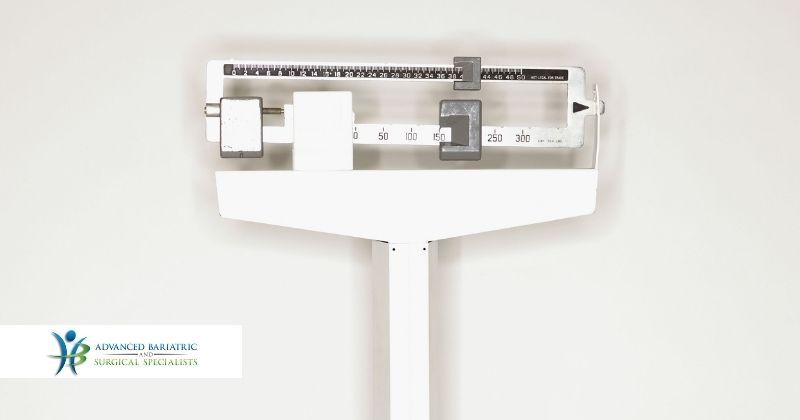The Importance of Lifestyle Changes
You will hear it said time after time, bariatric surgery is only a tool. While many believe it is, or wish it were, a quick fix, success with weight loss surgery is highly dependent on committing to important lifestyle changes. The mechanisms of surgery create restriction and in some cases change the digestive tract to limit absorption of calories. This still means that, following surgery, a bariatric patient can sustain themselves on “cheat” foods. Of course, the long term result is that improved health and weight loss success isn’t likely. So what lifestyle changes are important for bariatric patients?

Snacking After Bariatric Surgery
As you undoubtedly know from your research about bariatric surgery, the postoperative lifestyle is very different from the eating and exercise habits you had before. And while it may seem like a diet – and it is in the early parts of recovery – the long-term maintenance diet is actually very similar to what we would consider a healthy, normal diet for anyone, bariatric surgery or not. But before we get into the details of how and when to snack, let’s discuss the idea of snacking and how we may have been looking at it all wrong, probably for our entire lives.

Addressing Anxiety Before Bariatric Surgery
Anxiety before any surgical procedure is perfectly normal. There are many unknowns and that can be scary. Bariatric patients may feel even more anxious because the results do not become apparent on the day of surgery – they have months and years of weight loss to pursue and maintain. Patients are often concerned about the safety of the procedure and potential complications after surgery. Of course, they may also worry about the long-term results. While all of these concerns are justified, they are also very manageable and the team here at Advanced Bariatric and Surgical Specialists makes it our goal to ensure the smoothest surgical process for each of our patients. So, let’s jump in and see how to best manage the anxieties and fears we may have before surgery.
What I’m learning about addiction lately…
Many of us have at least one addict in our family….food, alcohol, work, gambling, drugs…they’re all legitimate addictions. Addicts tend to blame others for their bad behaviors. They tend to justify their actions even though they may be wrong morally and legally. Many addicts bend the truth or flat-out lie to cover their actions. This is just what addicts do. If you refuse to allow the addict to continue the bad behavior, they may call you a bully or intolerant. They may play the victim card…for example…”I can’t believe my parents made me move out after doing a little cocaine (again).”
It’s really easy to see these behaviors in our family members. The bigger question is can you see any of these behaviors in yourself? Can I see any of these behaviors in myself? We often see others as “toxic”. But can I see that I’m toxic sometimes? PS…if you don’t think you’re the toxic person at all…you’re probably the toxic person most of the time.
If I’m really honest with myself, I realize that I have lots of negative traits and actions that are offensive to other people and my Creator. The question then becomes…will I own the things I’ve done wrong? Will I release my pride and allow others to help me do better the next time?
~ Dr. Chang
Courage…One reason why bariatric surgery isn’t “taking the easy way”

It takes a great deal of courage and humility to ask for help with your weight. Weight is very personal and patients must “swallow their pride” and admit that their way of managing isn’t working. Oftentimes, patients have tried for years to manage their weight and have failed more often than they have succeeded. If they were successful, they wouldn’t be asking for anyone else’s help!
Success rates with bariatric surgery
We have recently been able to extract data from our bariatric society (American Society for Metabolic and Bariatric Surgery). Our report showed that patients from our practice entered into bariatric surgery 3 BMI points lower than…our patients were smaller on the day of surgery. However, they lost weight at a faster pace than the comparison group (the rest of the patients done elsewhere). At 2 years post-op, our patients were 5 BMI points lower than the comparison group.
Why most medical weight loss will fail…
I’ve heard that quite a few patients are doing medically supervised weight loss plans.
- When patients do temporary plans, they have temporary weight loss.
- When the diet stops, the patient is largely destined to regain weight. although this sounds like #1, it’s different. When you have to purchase foods or shakes or meal replacements, NO ONE will do this lifelong. Therefore they will only have temporary weight loss. The average American cannot afford the additional expense for a lifetime.
- Protein shakes as meal replacements don’t work. the feelings of fullness are partially generated by chewing your food. You will not get this from drinking a smoothie or drinking a protein shake.
- If the stomach is not properly filled, the patient stays in a starvation state. Studies of contestants from the Biggest Loser showed that their basal metabolic rate (BMR) went down by 25%. However, the same studay also showed that the BMR decreased with gastric bypass. The differences are the following…there was a smaller decrease with bypass and the calorie intake was lowered so much with bypass that patients were much more likely to keep weight off.
- Most patients I see for bariatric surgery have tried some gimicky medical weight loss plan…usually with Phentermine. If this really worked well, they would not be considering bariatric surgery!
Does The Gastric Sleeve Cure Diabetes?
Before we start, it is important to understand the difference between a cure and remission of type-2 diabetes. There’s a big difference and we try to discuss results in terms of remission. After all, type-2 diabetes is a chronic disease that must be managed even if symptoms have disappeared and blood sugar is normalized. There is no cure.
We have known for years that bariatric surgeries have shown great promise in improving type-2 diabetes. This was largely due, we thought, to weight loss and patient lifestyle changes after surgery. However, the gastric sleeve and gastric bypass have been particularly effective in this regard, with many patients improving or going into remission before losing a significant amount of weight.
Getting Healthier Before Bariatric Surgery
It may seem counterintuitive, but getting healthier and losing some weight before bariatric surgery can be very beneficial. One of the biggest roadblocks to a safe and effective surgery is generally poor health – a common byproduct of excess weight and poor dietary and exercise choices. In order to undergo the most successful surgery with the fewest possible complications, prospective weight loss surgery patients should try to ensure that they are in the best shape possible before undergoing the procedure.
Our New Corpus Christi Location!
It is with great pleasure that we inform you that on February 12, 2016 we will open our doors in more spacious and comfortable surroundings.
Dr. Chang and the Advanced Bariatric & Surgical Specialists team is excited to serve more patients with bariatric and minimally invasive surgical care.
Our new address is:
Advanced Bariatric & Surgical Specialists
5826 Esplanade Drive, Suite 202
Corpus Christi, TX 78414
To schedule an appointment in our Corpus Christi office, we invite you to contact us. Our phone number has not changed and you can reach us still at (361) 570-8585. The new location is in the SleepRite Sleep Center.
Since we started doing business in Corpus Christi, your loyal support has helped us grow, and now we need more space to serve you better. The previous cramped working space and limited parking were unacceptable. We are happy to announce that we have found a great place to have clinic.

